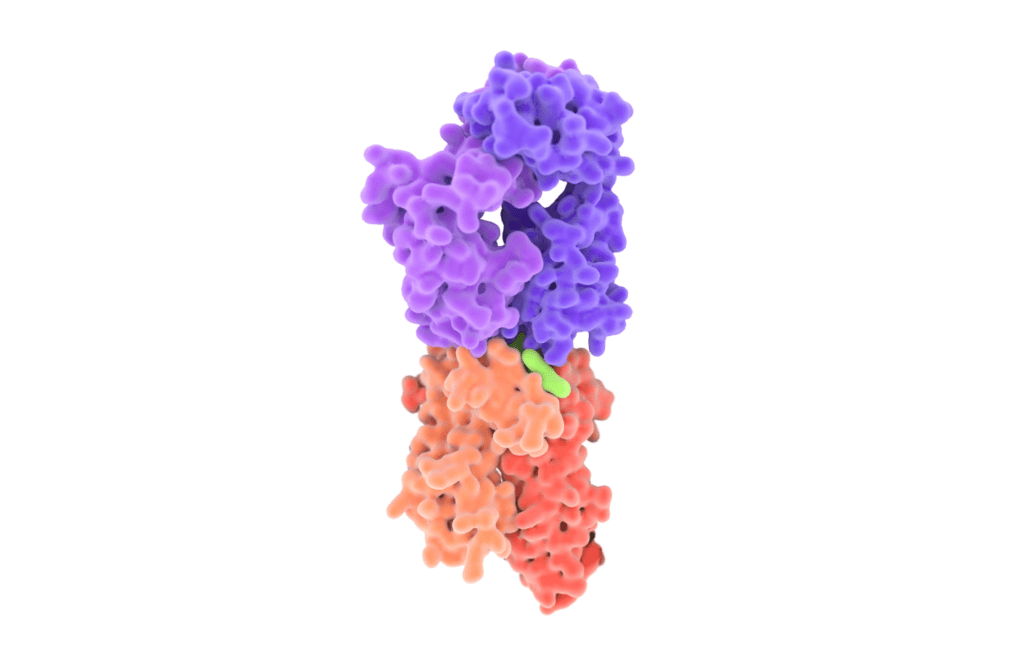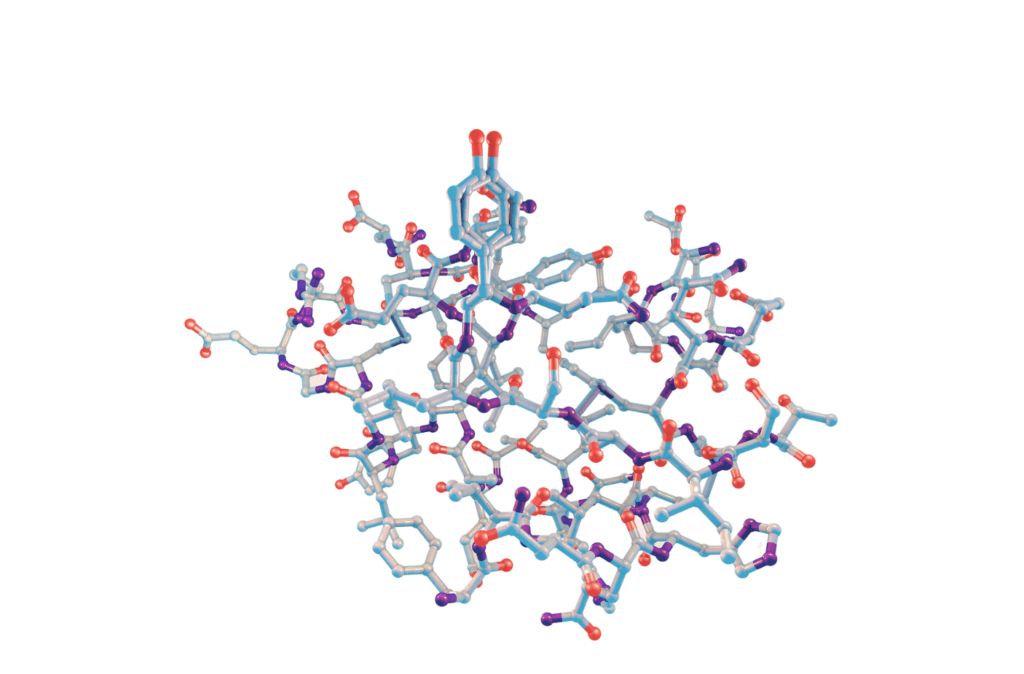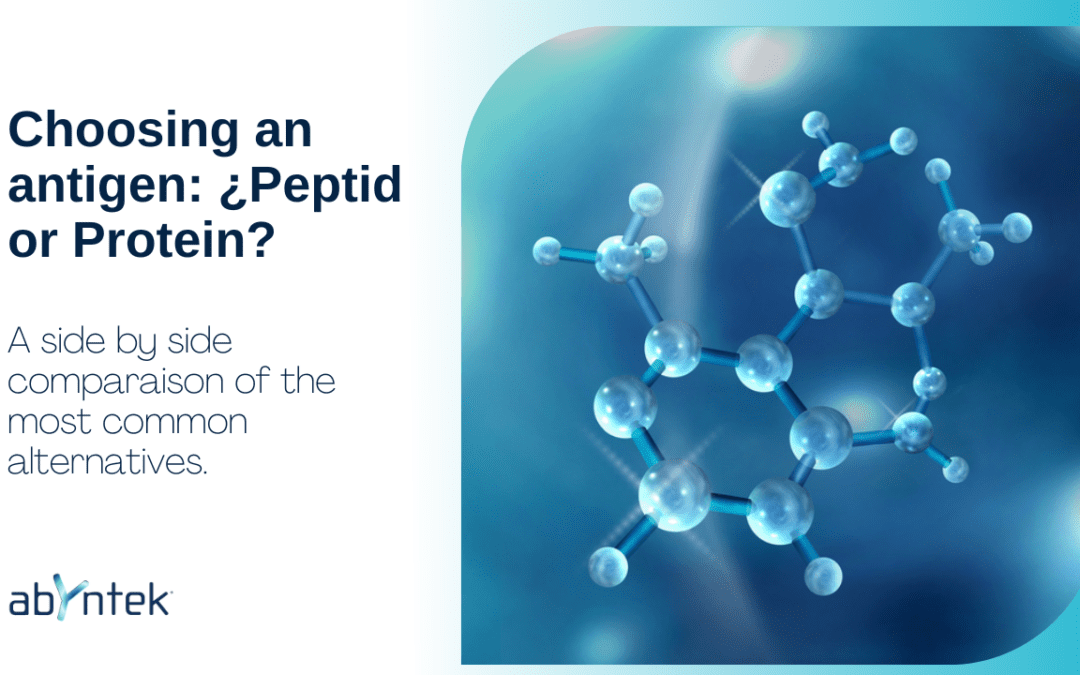When picking an antigen to generate monoclonal or polyclonal antibodies, it is normal to ask ourselves questions, such as: What will work better for my research, or which will give the best result?
The two most widely used alternatives are either complete proteins or peptides, being one or more parts of the sequence of the complete protein. Now, there are certain facts that we have to consider when choosing between both options.
The most important characteristic of the antigen is to be recognized as a foreign molecule for the individual.

Recombinant protein as antigen
If we decide on a recombinant protein when choosing an antigen, we should consider the following facts:
- The most evolutionarily conserved molecules are not good antigens. An example of this is histones.
- Proteins are the most immunogenic molecular type. Nucleic acids and lipids, on the other hand, are only immunogenic if they are joined to proteins or carbohydrates.
- The Size Matters. The larger the protein, the greater immune power it will have. In general, you can consider between 5,000 – 10,000 kDa small.
- The chemical composition and sequence also influence. The more complex the sequence, the more immunogenic it will be. Very repetitive peptides have low immunological power. In the case of proteins, structure and folding also contribute to reactivity.
- Insoluble molecules are better immunogens, since they are degradable by other actors of the immune system for their subsequent immunological processing. Likewise, denatured antigens are more antigenic than the native forms.

It would be reasonable to think that proteins are always better antigens than peptides, since if they are native, we will be immunizing the experimental organism with the same antigen that we will later recognize. However, this is not always possible. Therefore, the next best option seems to be to produce a recombinant protein in a heterologous organism.
Other things to take into account
- First, collect as much information as possible about the protein in protein databases and scientific articles. Based on the information available, choose the production organization that best suits your need. If the proteins are simple, and post-translational modifications are not a problem, a simple organism, such as E. coli, could fulfil the necessity. If post-translational modifications are known to occur, or it’s unknown if they can affect the protein target, a more complex organism, such as mammalian or insect cells, are more recommendable.
- Think about Possible cross-reactivities with other proteins. If the degree of homology of our target with other proteins is high, it may be a good idea to design peptides that correspond to the sequences that are different in our target protein, compared to others.
- Something that we must also take into account is that it is not always possible to express and produce recombinant proteins.
- On the other hand, if recombinant proteins are ruled out as antigens, it may be interesting to consider them as targets in antibody screening; especially for monoclonals.
To summarize, the main advantage of recombinant proteins has been that they are more similar to the real molecule that we will be later identified. The disadvantage is that, if they are not commercially available and need to be produced in the laboratory, the task can be tedious, since it consumes time and resources, and even impossible.
Peptides as antigen
If you end up going for a peptide when choosing an antigen, you should consider these facts:

- The size should not be too small. A regular length might be between 10-20 amino acids. However, if the peptide is small, in this case, a conjugation to a carrier protein is possible, to increase the immunogenicity.
- The amino acid sequence should be non-repetitive.
- The peptide design may cover parts of the protein that are not affected by post-translational modifications.
- The peptide sequence might cover exposed epitopes. Generally, both N and C protein terminal parts, are exposed to the exterior.
- It is possible to design and synthesize a few peptides to use as an immunogen. In this way, different parts of the protein might be detected. The only recommendation, as mentioned in the previous point, is to avoid interior or transmembrane epitopes.
The advantage of using peptides as antigens is that you can design as many as you need, in order to immunize with several of them at the same time. There are online tools that allow us to predict which epitopes or parts of proteins might act as good antigens.
Additionally, peptide synthesis is simple and cheap. On the contrary, as they are part of the protein sequence, they are less similar to our target than recombinant proteins.
- If you need to produce a peptide, click here. We will send you a custom budget.
- If, on the contrary, you want to develop a recombinant protein, click here.
If you prefer to talk to a technical expert to determine which antibody fits better your research, don’t hesitate to contact us, we will be more than happy to resolve any doubt and design the best project.




